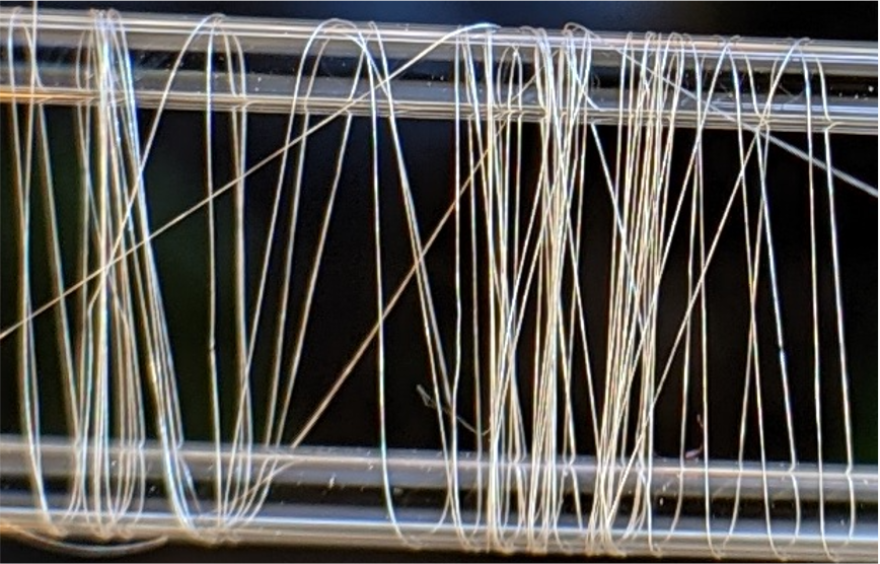
Marcus Foston and Fuzong Zhang
Researchers at Washington University in St. Louis are producing nature-inspired materials that can replace petroleum-based products and decrease plastic waste.

Marcus Foston and his research group have been awarded a five-year, $3.6 million Growing Convergence Research grant from the National Science Foundation to develop sustainable alternatives for plastic.
“Our typical waste processing leaks plastics into our environment, and we find them in our soils, we find them in the water, and [they] often turn into these really small nanoparticles that can get into everything,” the associate professor in the McKelvey School of Engineering told St. Louis on the Air.
Plastic pollution is a global phenomenon that devastates marine life and poses a significant economic strain, Foston said. The effects of plastic waste can be seen locally too. Nearby bodies of water, like the Missouri and Mississippi rivers, are contaminated with high levels of plastic, he added.
Foston’s colleague, Wash U biologist Fuzhong Zhang, has found success in reproducing spider silk — a natural fiber known for its strength and durability — through synthetic biology techniques.
“The idea is … we can go back to search for a natural solution for plastics,” he said. “We can produce those materials by nature and through a more environmentally friendly way.”
Their research is multi-institutional and multi-disciplinary, with partnerships among social scientists, economists and machine learning specialists from various universities.
“Working in such a collaborative environment would much more efficiently improve our productivity and allow us to do many new things that a single group cannot,” Zhang said.
Working with industries that can use these plastic alternatives is a priority for Foston. Over the next five years, he said he hopes his team can develop biocompatible objects for local hospitals.
“Trying to understand the drivers and the barriers for technology adoption, even at an early stage of engineering … can be very, very useful in that technology development. And that’s what we’re trying to do here,” Foston said.
To learn more about how biodegradable materials may replace some plastics, listen to the full St. Louis on the Air conversation on Apple Podcast, Spotify, Google Podcast, Stitcher, or by clicking the play button below.
Marcus Foston and Fuzhong Zhang join “St. Louis on the Air”LISTEN • 17:50


